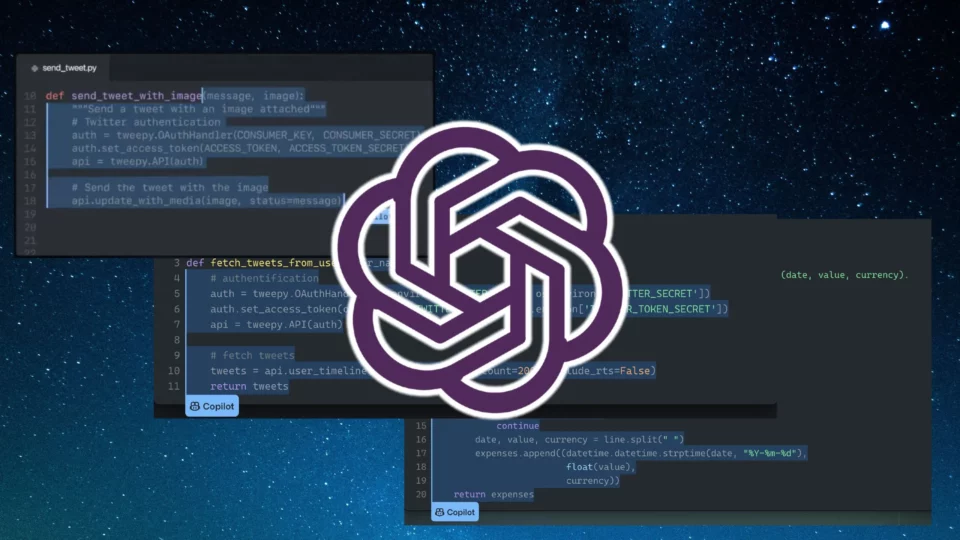OpenAI Codex offers a range of solutions to common challenges faced by tech startups. It streamlines coding tasks, automates repetitive processes, assists in generating content, and aids in the rapid prototyping of software solutions. 💻🔄
By leveraging its capabilities, startups can save time, reduce human error, and focus on innovation and growth.
How can OpenAI Codex optimize coding tasks in startups?

Efficient coding is crucial for startups to maintain agility and competitiveness. OpenAI Codex facilitates code generation in multiple programming languages, simplifying complex tasks and filling knowledge gaps.
It accelerates development by offering suggested code snippets and debugging support, enabling startups to launch products faster with fewer resources.
In addition to code generation, OpenAI Codex translates natural language instructions into functional code. This feature benefits teams with diverse technical backgrounds, democratizing code creation and allowing more members to contribute to product development.
This inclusivity is particularly helpful for teams lacking specialized knowledge in every coding language.
What role does OpenAI Codex play in automating repetitive tasks?
Startups often grapple with the challenge of achieving more with limited resources. OpenAI Codex addresses this issue by automating time-consuming tasks, ranging from basic file management to intricate data manipulations.
This automation streamlines workflows, allowing human resources to dedicate their time to creative and strategic initiatives that propel business growth.
Its versatility demonstrated through its integration with APIs and existing codebases, makes it adaptable to diverse automation requirements.
Furthermore, the implementation of automation significantly reduces the risk of human error, enhancing the precision and reliability of tasks. This accuracy is particularly advantageous for startups, as it contributes to the maintenance of product and service quality.
Can OpenAI Codex enhance content creation and marketing for startups?

Content creation and marketing are often significant bottlenecks for startups. OpenAI Codex can be instrumental in generating code for custom content management systems, tailoring website features to enhance user engagement, or producing scripts for data-driven marketing strategies.
It helps marketing teams create more personalized customer experiences that are pivotal in today’s digital marketplace.
Also, OpenAI Codex can assist in creating analytical tools that provide insights into customer behavior and industry trends, which are essential for forming effective marketing campaigns.
By quickly analyzing data and generating reports, startups can make informed decisions, fine-tune their marketing efforts, and improve ROI on their marketing spend.
How does OpenAI Codex foster innovation within tech startups?
One of the biggest challenges for startups is to continually innovate to stay ahead of the curve. OpenAI Codex fosters innovation by reducing the time spent on menial coding tasks, freeing up developers to focus on creative problem-solving.
It can be used to quickly prototype new ideas, test hypotheses, and iterate through design cycles without significant upfront investments in time or capital.
In addition, by allowing non-technical founders and team members to interact with the coding aspect of product development, OpenAI Codex can bring diverse perspectives into the development process. This inclusive approach to innovation can lead to more holistic and customer-centric product offerings for the startup.
For those interested in exploring further, the ‘Getting To Know OpenAI Codex: AI-Driven Content Creation Simplified‘ article, provides an excellent introduction and deeper insights into the capabilities of this tool.
Conclusion
In sum, OpenAI Codex addresses several key issues that tech startups face. It enhances coding efficiency, automates tedious tasks, supports dynamic content creation, and underpins a culture of innovation.
This AI-driven tool can be a game-changer for startups looking to carve out a niche in the competitive tech industry.
It is not just a facilitator of technological processes but also a catalyst for strategic growth and creative exploration in the startup ecosystem. 🚀💡
- The Agentic Startup Manifesto - June 8, 2025
- Remote Hiring in 2025 - April 5, 2025
- Burnout in Remote Teams: How It’s Draining Your Profits - January 27, 2025
